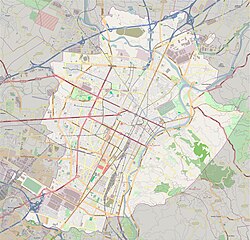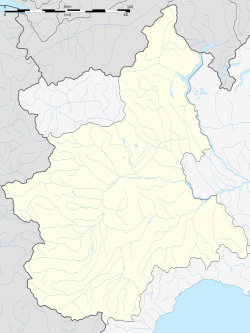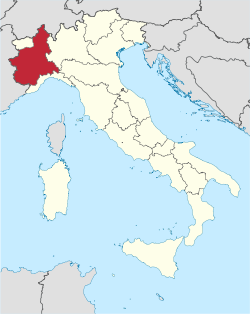Turin-Aeritalia Airport
Appearance
This article needs additional citations for verification. (March 2022) |
Turin-Aeritalia Airport Aeroporto di Torino-Aeritalia | |||||||||||||||||||
|---|---|---|---|---|---|---|---|---|---|---|---|---|---|---|---|---|---|---|---|
| Summary | |||||||||||||||||||
| Airport type | Private | ||||||||||||||||||
| Operator | Aeroclub Torino | ||||||||||||||||||
| Location | Turin, Piedmont, Italy | ||||||||||||||||||
| Elevation AMSL | 943 ft / 288 m | ||||||||||||||||||
| Coordinates | 45°05′20″N 007°36′20″E / 45.08889°N 7.60556°E | ||||||||||||||||||
| Website | www.AeroclubTorino.it | ||||||||||||||||||
| Map | |||||||||||||||||||
 | |||||||||||||||||||
| Runways | |||||||||||||||||||
| |||||||||||||||||||
Turin-Aeritalia Airport (Italian: Aeroporto di Torino-Aeritalia, ICAO: LIMA)[1] also known as Edoardo Agnelli Airport, built in 1916, is the historical airport of Turin in the Piedmont region of northern Italy. It is located off Corso Marche, some 5 km (3 mi) to the west of the city centre.
Commercial flights moved to Turin Caselle Airport in 1953 and today Torino-Aeritalia is used for tourist flights and as a flying school, both for gliding and powered flight. There is also a helipad for the use of air ambulances.
One of the airport's buildings was redesigned in 1958 by the Torinese architect Carlo Mollino.
References
[edit]- ^ "Mindat.org". www.mindat.org. Retrieved 2022-03-08.



